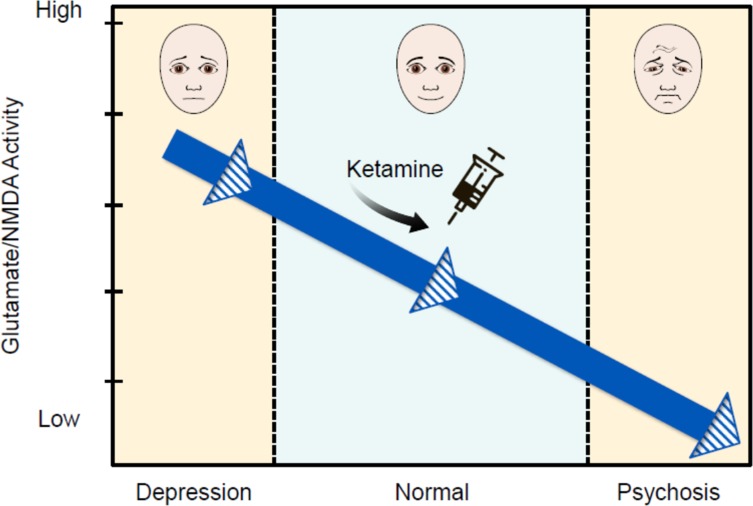Figure 1.
Hypothetical model explaining relationship of glutamate/NMDA activity in relevant CNS pathways with psychiatric symptoms. In this model, high glutamate/NMDA activity is associated with depression and low glutamate/NMDA activity is associated with psychosis. Ketamine reduces glutamate/NMDA activity in a dose-dependent manner. Depressed patients may have higher baseline glutamate/NMDA activity such that when given ketamine, they do not drop below the theoretical threshold necessary for the development of psychotic symptoms.

